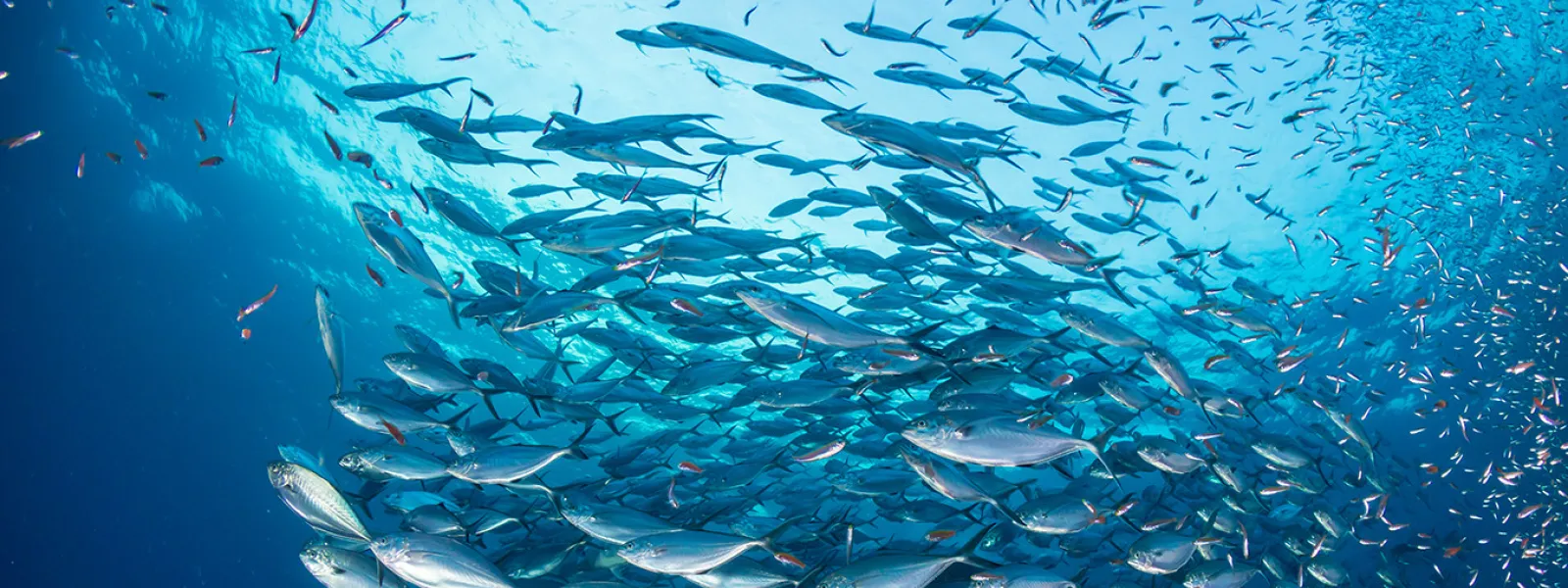
Project
ShutterstockTowards an end to subsidies that promote overfishing
Overfishing is one of the main problems for the health of our ocean. And the provision of negative subsidies to the fishing sector is one of the fundamental causes of overfishing.
Fishing subsidies are financial contributions, direct or indirect, that public entities grant to the industry.
Depending on their impacts, they can be beneficial when they promote the growth of fish stocks through conservation and fishery resource management tools. And they are considered negative or detrimental when they promote overfishing with support for, for example, increasing the catch capacity of a fishing fleet.
It is estimated that every year, governments spend approximately 22 billion dollars in negative subsidies to compensate costs for fuel, fishing gear and vessel improvements, among others.
Recent data show that, as a result of this support, 63% of fish stocks worldwide must be rebuilt and 34% are fished at "biologically unsustainable" levels.
Although negotiations on fisheries subsidies, within the framework of the World Trade Organization, officially began in 2001, it was not until the 2017 WTO Ministerial Conference that countries committed to taking action to reach an agreement.
This finally happened in June 2022, when member countries of the World Trade Organization reached, after more than two decades, a binding agreement to curb some harmful fisheries subsidies. It represents a fundamental step toward achieving the effective management of our fisheries resources, as well as toward ensuring global food security and the livelihoods of coastal communities.
The agreement reached at the 12th WTO Ministerial Conference provides for the creation of a global framework to reduce subsidies for illegal, unreported and unregulated fishing; subsidies for fishing overexploited stocks; and subsidies for vessels fishing on the unregulated high seas. It also includes measures aimed at greater transparency and accountability in the way governments support their fisheries sector.
The countries agreed to continue negotiating rules to curb other harmful subsidies, such as those that promote fishing in other countries' waters, overfishing and the overcapacity of a fleet to catch more fish than is sustainable.
If we want to have abundant and healthy fishery resources, it is time to change the way we have conceived fishing until now. We must focus our efforts on creating models of fishery use that allow for long-term conservation.
Partners:
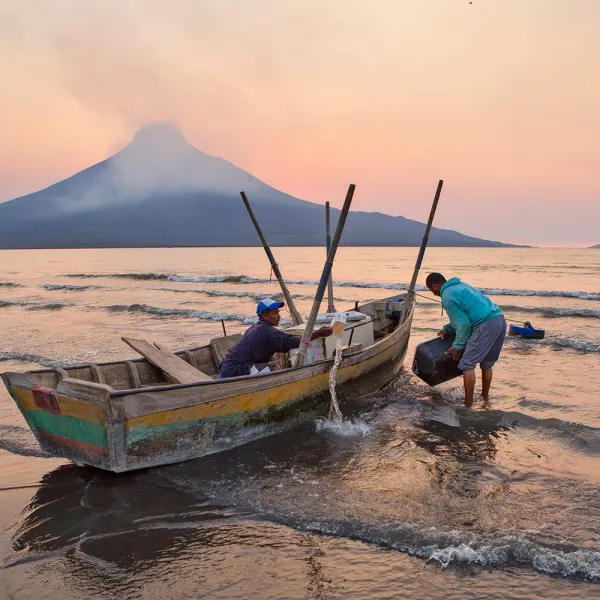
Latest News
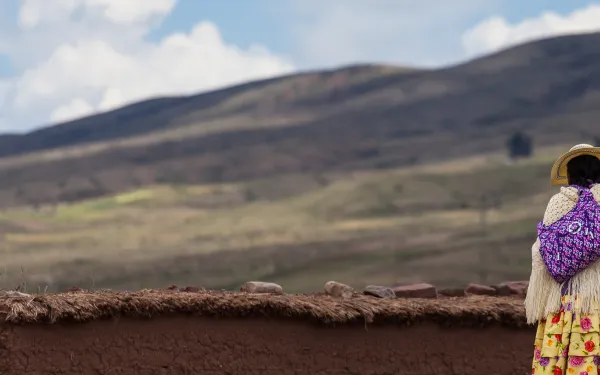
Toward environmental justice: 4 achievements for AIDA in 2022
Success stories are the result of processes that take time, perseverance and joint actions. Faced with the challenges of environmental degradation and the climate crisis, these precepts are more relevant than ever. They are a reminder that the defense of the environment is collective and long-term. For AIDA, 2022 was a year of important achievements in our efforts to contribute to environmental and climate justice in Latin America. These advances demonstrate the importance of collaboration and persistence. They are in turn precedents for litigation, advocacy and alliance-building in favor of the broader regional movement of which we are a part. 1. LA OROYA POLLUTION VICTIMS HEARD BY INTER-AMERICAN COURT People affected by toxic contamination from a metal smelter in the Andean city of La Oroya, Peru, presented their case before the Inter-American Court of Human Rights. More than 20 years after taking the case, AIDA succeeded in presenting their case before the international court and demonstrating the Peruvian government's responsibility in the violation of their rights. The eventual ruling is a historic opportunity to establish a key precedent upholding the right to a healthy environment in Latin America. LEARN MORE 2. DIGITAL PLATFORM STRENGTHENS CLIMATE LITIGATION IN LATIN AMERICA Climate litigation has the power to accelerate corporate and government accountability in the face of the climate crisis, and push actions to protect communities and ecosystems. To strengthen this growing movement, we created the Climate Litigation Platform for Latin America and the Caribbean, which currently displays more than 50 legal cases involving climate arguments. It is our contribution to facilitating the exchange of strategies and arguments among those who use the courts to defend the planet. LEARN MORE 3. INTERNATIONAL AGREEMENT CONTRIBUTES TO OCEAN RESILIENCE AIDA was part of the efforts of organizations, governments, academia and the private sector to reach a binding agreement at the World Trade Organization to curb harmful fisheries subsidies, including those that encourage illegal, overfished and unregulated fishing on the high seas. This will help reduce threats to the ocean, a key ally in addressing the climate crisis due to its ability to absorb the planet's excess heat and carbon dioxide emissions. LEARN MORE 4. REGIONAL ALLIANCE ELEVATES THE VOICE OF THE CLIMATE JUSTICE MOVEMENT In response to the need to change the narrative about the climate crisis and strengthen the voice of the movement for a just energy transition in the region, Presentes was born, an alliance coordinated by AIDA that brings together organizations, communities and environmental advocates. We joined together to communicate more strategically and reach more people through the exchange of knowledge and experiences, pedagogy, the use of digital tools and internal capacity building LEARN MORE We invite you to learn more about these achievements and AIDA's work during the year in our 2022 Annual Report
Read more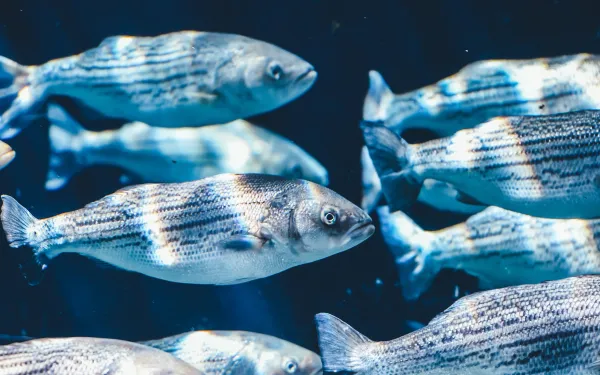
AIDA celebrates WTO agreement to curb harmful fisheries subsidies
We consider the agreement a "crucial step" for the sustainability of fishery resources in the short, medium and long term, as well as for ensuring food security and the livelihoods of coastal communities. Geneva, Switzerland. As an environmental organization that has closely followed the negotiations to limit global fisheries subsidies, the Interamerican Association for Environmental Defense (AIDA) applauds that member countries of the World Trade Organization (WTO) reached, after more than two decades, a binding agreement to curb some harmful fisheries subsidies. It represents a fundamental step toward achieving the effective management of our fisheries resources, as well as toward ensuring global food security and the livelihoods of coastal communities. "This is a crucial step towards ensuring the sustainability of fishery resources in the short, medium and long term," said Gladys Martinez de Lemos, executive director of AIDA. "We urge the 164 member countries of the WTO to ratify the agreement as soon as possible, and to implement the necessary changes derived from it to contribute significantly to the health of marine life and the well-being of those who depend on it." It is estimated that, each year, governments spend approximately $22 billion in negative subsidies to offset costs for fuel, fishing gear and vessel improvements, among others. As a result of that support, 63 percent of fish stocks worldwide must be rebuilt and 34 percent are fished at "biologically unsustainable" levels, according to recent data. The agreement reached at the 12th WTO Ministerial Conference, held June 12-16, provides for the creation of a global framework to reduce subsidies for illegal, unreported and unregulated fishing; subsidies for fishing overexploited stocks; and subsidies for vessels fishing on the unregulated high seas. The high seas fishing provisions represent an achievement for Latin America, a region whose fishing industry is severely threatened by aggressive foreign fleets fishing inside and outside of national jurisdictions. The agreement also includes measures aimed at greater transparency and accountability in the way governments support their fisheries sector. The countries agreed to continue negotiating rules to curb subsidies that promote fishing in other countries' waters, overfishing and the overcapacity of a fleet to catch more fish than is sustainable. "This agreement is one part of the movement we need at the international level to contribute to the health of the ocean," explained Magie Rodríguez, AIDA attorney. "We have three more to go: the high seas treaty, more ambitious and rigorous standards for ocean mining, and recognition of the key role the ocean plays in the climate crisis. We will continue to work with our allies to achieve these goals.” Although negotiations on fisheries subsidies officially began in 2001, it was not until the 2017 WTO Ministerial Conference that countries committed to taking action to reach an agreement at the next conference—which was to take place in December 2020, but was suspended due to the pandemic. This commitment also responds to the fulfillment of target 14.6 of the United Nations Sustainable Development Goals. In 2021, the Ministerial Conference failed to reach an agreement, but it did reach a draft text. "This year's achievement would not have been possible without the joint efforts of many different organizations, academia, governments and the private sector," said Martinez. press contact Victor Quintanilla (Mexico), [email protected], +525570522107
Read more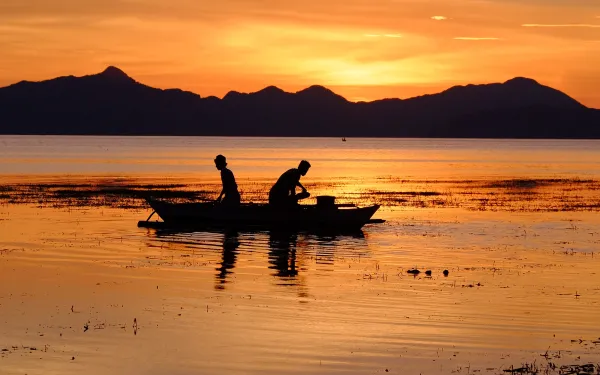
Latin American fisheries are at risk
By Magie Rodríguez (AIDA) and Ernesto Fernández Monge (The Pew Charitable Trusts) Fishing is fundamental to the Latin American economy and, for of our region’s people, their way of life. It’s a centuries-old industry at risk. According to the Food and Agriculture Organization of the United Nations, the region produces 21.5 million metric tons of fish each year, a quarter of the world's annual production. Roughly 2.3 million people are involved in fishing activities. However, the industry is losing out to aggressive foreign fleets, mostly from Europe and Asia, fishing within Latin America's exclusive economic zones (EEZs) and in areas just outside them. Unlike domestic vessels, these fleets often benefit from substantial funding from their home governments, which allows them to fish outside their own countries' waters. These fishing subsidies, intended to increase capacity, are harmful. They pay for fuel and other expenses, artificially reduce the cost of fishing, and allow fleets to fish in areas where it would otherwise be unprofitable to do so. After more than two decades of talks, the 164 member governments of the World Trade Organization (WTO) are closer than ever to agreeing on a new globally binding treaty that would curb harmful subsidies that allow fleets to fish both in other countries' waters and on the high seas. Fishing offshore, on the periphery of another nation's waters, can harm a country's fisheries in part because it allows foreign vessels to catch migratory species, such as tuna or billfish, before they enter the EEZ. As trade ministers prepare to meet in Geneva for a WTO ministerial conference June 12-15, Latin American leaders must push for a fisheries subsidies agreement that will help their countries' fishermen better compete with foreign fleets. To do so, the agreement should eliminate all capacity-enhancing subsidies that prop up so-called distant-water fishing and allow more fishing than the market would otherwise sustain. Each year, governments around the world dole out $22 billion in harmful subsidies to fisheries and, of that amount, nearly two-thirds comes from just six countries and the European Union. About one-third of that amount, $7.2 billion, is targeted to help countries fish in other nations' EEZs and offshore at the edge of those territorial waters, according to a new research-based tool developed by scientists at the University of California, Santa Barbara, with funding from The Pew Charitable Trusts. The increase in distant-water fishing is driven by a sad reality: having depleted fish stocks in their own waters, major fishing nations are looking elsewhere to fill their nets. Ecuador's Galapagos Islands made headlines last year when research revealed that in just one month, 300 Chinese vessels spent 73 thousand hours fishing off the EEZ surrounding the Galapagos. In addition, the tool shows that, for example, 180 vessels from just four countries (China, South Korea, Chinese Taipei and Spain) spent a total of 84 thousand hours fishing in Argentina's EEZ in 2018. That's the equivalent of 9.6 years on the water. That undertaking was made possible by nearly $92 million in harmful subsidies. Encouragingly, leaders across the region have long supported reducing subsidies in distant waters: Argentina, Chile and Uruguay co-sponsored a WTO proposal in 2019 to ban such subsidies and, in July 2021, Uruguay's foreign minister stated that such a ban would have "enormous potential to have a significant impact on the state of the oceans and the livelihoods of fishing communities." However, major fishing nations are seeking to water down the text of the potential WTO agreement so that they can continue fishing in other countries' waters. That’s why Latin American trade ministers must continue to push for the elimination of subsidies in distant waters, helping to ensure that fish from their waters primarily reach their vessels, restore competitive advantage to the region's fishermen, and sustain a vital industry—and livelihood—across the continent.
Read more